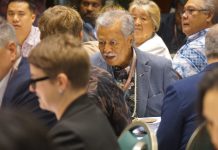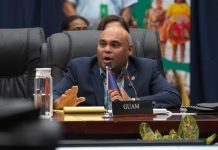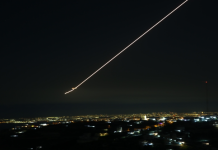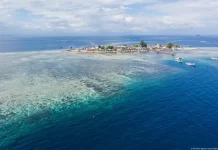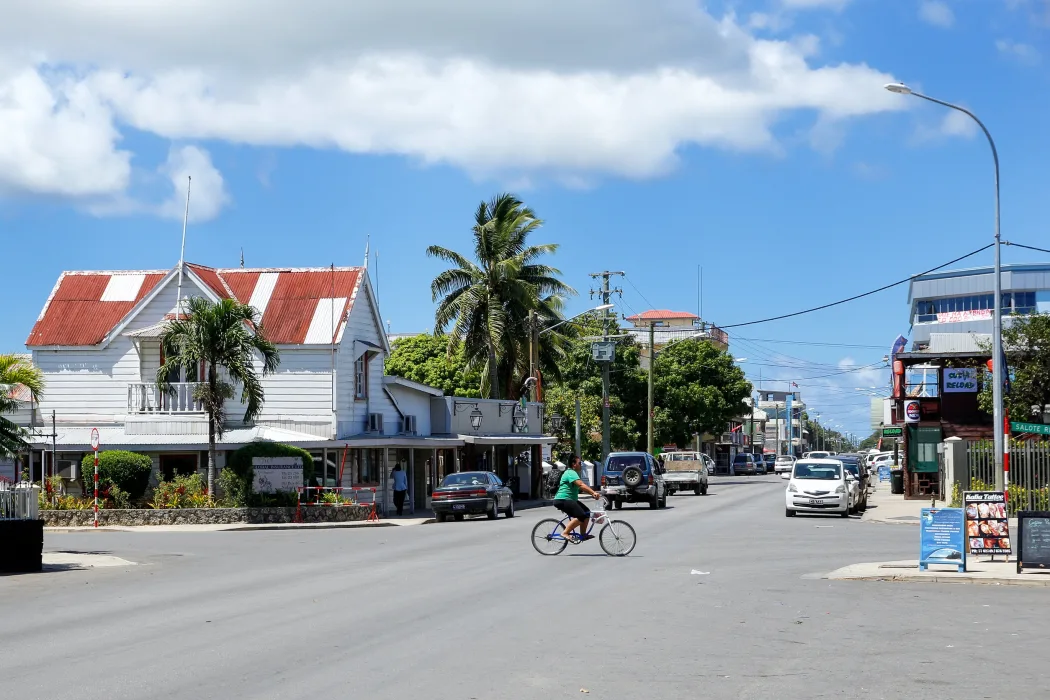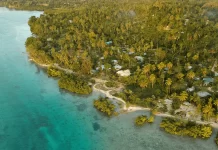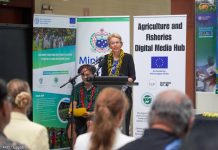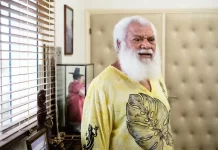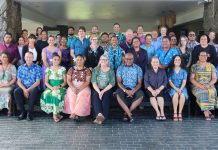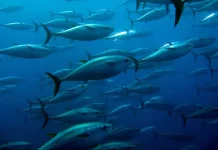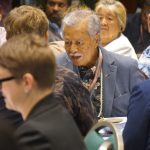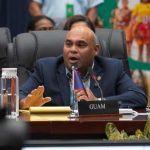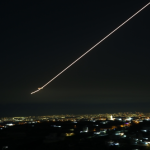By Mihai Sora
The Pacific region is facing a “polycrisis”, said Fiji Prime Minister Sitiveni Rabuka at a Pacific security conference in Suva in June.
The mounting threats of climate change, transnational crime, intense geopolitical competition, severe debt and economic distress are compounding regional human security pressures, such as mental health, non-communicable diseases, gasping health systems and plummeting education outcomes.
It is against this backdrop that Pacific leaders will gather in Tonga next week for the 53rd Pacific Islands Forum Leaders Meeting. Their agenda will be crowded with a raft of security, political and economic issues on which they will be expected to take action, from climate change to regional policing initiatives to New Caledonia.
Eyes are on European and Gulf countries to put their money where their mouths are.
Tonga is expecting more than 1,000 participants for the meeting, including delegations from the 18 PIF members, 21 dialogue partners, numerous observers, private sector representatives, civil society groups and regional organisations. That’s a lot of dignitaries for Nuku’alofa, Tonga’s capital of about 23,000 people. And many will be trying to push the issues they see as most important.
Climate change and disaster resilience
Climate change remains the top-line regional security priority. Leaders will want to progress the establishment and funding of the Pacific Resilience Facility (PRF), the first “Pacific-owned and led” regional financial institution, aimed at building resilience to climate change and natural disasters. They will be asked to endorse the Forum Economic Ministers’ recommendation to host the facility in Tonga.
That’s the easy part.
The PRF has a target of raising US$500 million by 2026. So far, Australia has pledged US$100 million. Saudi Arabia, the United States, China and Türkiye have also made commitments of US$16 million between them, bringing the total to US$116 million. Well short.
As host, Tonga will be hoping that the presence of United Nations Secretary-General António Guterres at this meeting will put the fire under international partners to make or increase their contributions. Guterres has been sounding the global climate alarm loudly and has committed to hosting a fundraising round in New York for this facility.
New Caledonia
The strife in New Caledonia is a concern for all in the region. The French territory erupted with protests related to longstanding grievances over independence on 13 May, which rapidly descended into civil unrest, costing lives and resulting in extensive property damage in the capital, Noumea.
Paris’s handling of the situation, particularly questions on New Caledonia’s political future and the outcomes of a series of independence referendums, has been widely criticised by regional civil society actors. New Caledonia’s pro-independence movement has tapped into a deeply felt sympathy for self-determination across the Pacific, a region where many countries only gained independence in recent decades.
But Pacific leaders themselves have been more circumspect, abiding by the principle of non-interference rather than colonial concerns, and have largely limited their statements to calling for an end to the violence.
Leaders will be focused on those issues where they feel they can make progress.
On 10 August, French President Emmanuel Macron gave approval for a three-leader PIF “fact-finding mission” – comprising the prime ministers of Cook Islands, Solomon Islands and Fiji – to visit New Caledonia and report back to leaders in Tonga. But disagreements on the nature and scope of the mission make it increasingly unlikely that it will go ahead in time.
The issue will be on the agenda in Nuku’alofa, but it is not clear what the PIF can do about it until all relevant parties agree to a mission. And when it comes down to it, PIF Leaders Meetings are generally confined to making progress on what’s possible. New Caledonia is a thorny issue for Pacific leaders. Like West Papua, which has been a “standing agenda item” at Leaders Meetings for years, but which was not discussed at the Forum Ministers Meeting this month in Suva.
Policing and security
Australia will be looking to get the AUD$400 million (US$269 million) Pacific Policing Initiative endorsed by PIF Leaders, who are increasingly concerned with rising crime rates in their countries and transnational drug syndicates setting up shop locally. The initiative will offer Pacific countries additional capability gains beyond existing policing programs, as well as extra training and capacity-building.
But it is not without its detractors. Senior Solomon Islands official Collin Beck criticised the initiative on social media, drawing a rebuke from Fiji’s Rabuka. The proposal passed through the Foreign Ministers Meeting and incoming Forum Chair Tonga will seek Leaders’ endorsement, with the caveat that further consultations at national level will be needed.
China’s ambition to provide police training to Pacific countries adds to geopolitical tensions in the region. China’s move runs counter to a “Pacific-first’” response to security challenges. Australia would hope that this Pacific-led policing initiative injects some stability into the regional balance of power, and puts some more meat on the bones of PIF statements such as the Boe Declaration on Regional Security.
Agree where we can
International interest in the PIF Leaders Meeting has been growing in line with increasing geopolitical competition in the Pacific. But with skyrocketing costs-of-living across the region, everyday people in the Pacific are more worried about high inflation, debt, unemployment, struggling social services and other domestic points of stress.
Pacific communities will be looking for tangible outcomes from the talks. And the PIF as an institution is under pressure to demonstrate that it is delivering public goods.
So, leaders will be focused on those issues where they feel they can make progress. Climate change. Economic recovery. Policing. They will not dwell on potentially divisive or sensitive issues. New Caledonia. West Papua. Deep-sea mining. Some will say this shows a lack of ambition. Others will see this approach as pragmatic.


